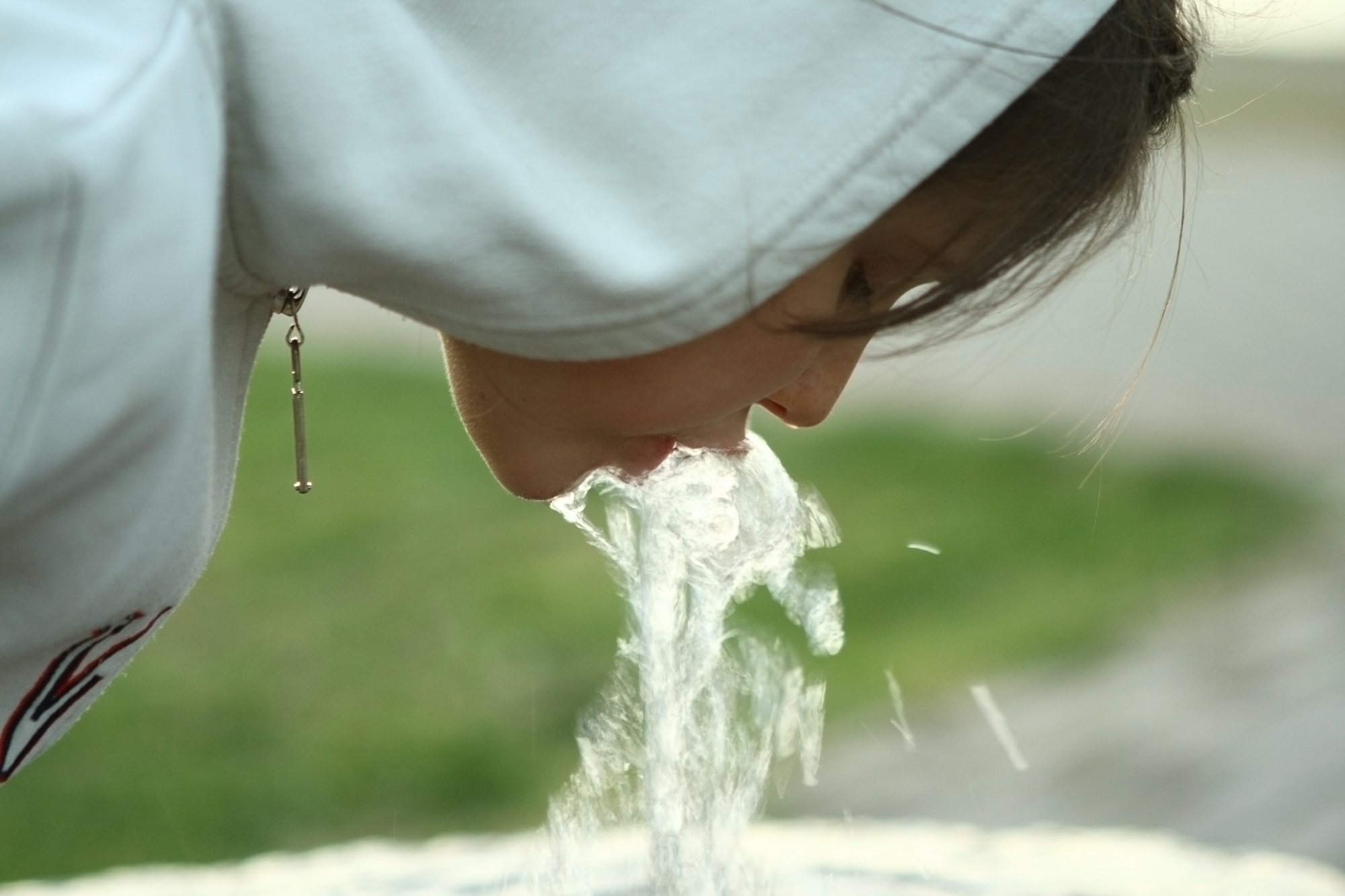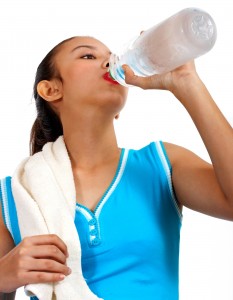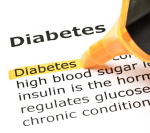
Low carb diet stalled? Drink more water. Really.
When your low carb diet is failing you, the first place to look (we assume you know when you are cheating on carbs) is at your water intake. The number one non-cheating reason people stall on low carb diets is because they are not drinking enough water. (Number two is not eating enough fat.)
Low carb diets are designed to burn fat by putting the dieter into benign dietary ketosis. This takes three things:
- Cutting carbs down to 40 grams or less per day (and avoiding processed carbs completely);
- Eating enough fat to stoke the ‘fat burning’ mechanism; and
- Drinking water. Lots of water.
What about tea, coffee, and diet drinks?
You might be able to get away with drinking diet soda and Crystal Light all day with other types of programs, but low carb diets are naturally diuretic. They also break down glycogen reserves and fat that needs to be flushed out of your system. You will pee a lot and need to drink water to replace lost body fluids. Diet soda just does not do the right job.
Beverages that are high in sodium (like diet soda) can cause fluid retention. No carbonated drink can hydrate the body as efficiently as plain water. And, many low carb dieters are sensitive to ingredients in soda and Crystal Light and find that they cannot enter into ketosis no matter how much they cut out carbs until they give up the artificially sweetened beverages.
Citric acid, another common ingredient in diet soda and other diet products, can stall weight loss for 40-50% of people who follow low carb diets. If you are sensitive to this substance it can slow down your weight loss by kicking you out of ketosis.
How much water should I drink?
That depends on several things:
- Your climate (the hotter and dryer, the more water your body needs);
- How active you are;
- If you have any health problems that require additional fluid intake (i.e, diabetes insipidus, cystic fibrosis, etc.)
- If you are pregnant or nursing (ketosis is not recommended for women who are nursing).
 Most experts agree that we all need at least 8 cups of water per day. Most low carbers agree that for low-carb diet success you need to drink twice that. And, if you are constipated — you need more water.
Most experts agree that we all need at least 8 cups of water per day. Most low carbers agree that for low-carb diet success you need to drink twice that. And, if you are constipated — you need more water.
Two good rules of thumb: If you are thirsty, drink water. If your low carb diet suddenly stalls, try drinking more water for a couple of days before making other drastic dietary changes.
Calculating How Much Water to Drink
The Mayo Clinic offers the following guidelines for calculating how much water to drink:
- “Replacement approach. The average urine output for adults is about 1.5 liters (6.3 cups) a day. You lose close to an additional liter (about 4 cups) of water a day through breathing, sweating and bowel movements. Food usually accounts for 20 percent of your total fluid intake, so if you consume 2 liters of water or other beverages a day (a little more than 8 cups) along with your normal diet, you will typically replace your lost fluids.
- Eight 8-ounce glasses of water a day. Another approach to water intake is the “8 x 8 rule” — drink eight 8-ounce glasses of water a day (about 1.9 liters). The rule could also be stated, “Drink eight 8-ounce glasses of fluid a day,” as all fluids count toward the daily total. Although the approach really isn’t supported by scientific evidence, many people use this easy-to-remember rule as a guideline for how much water and other fluids to drink.
- Dietary recommendations. The Institute of Medicine advises that men consume roughly 3 liters (about 13 cups) of total beverages a day and women consume 2.2 liters (about 9 cups) of total beverages a day.
Even apart from the above approaches, if you drink enough fluid so that you rarely feel thirsty and produce 1.5 liters (6.3 cups) or more of colorless or slightly yellow urine a day, your fluid intake is probably adequate. If you’re concerned about your fluid intake, check with your doctor or a registered dietitian. He or she can help you determine the amount of water that’s best for you.”
Related Articles:
Sources: Water: How much should you drink everyday? MayoClinic.com


